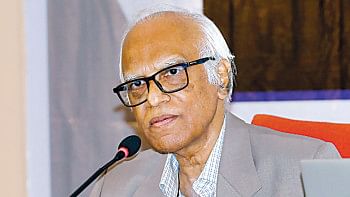Ex-Maldives president urges India to resolve crisis

- Police arrest former president, chief justice
- President Yameen says emergency aimed at foiling coup - Maldives is tourist paradise in Indian Ocean - Opposition leader urges India to send envoy backed by military
An exiled former president of the Maldives urged India today to send an envoy backed by military to release political prisoners after the government of the Indian Ocean archipelago imposed a state of emergency and arrested two senior judges.
Best known as an "A-list" holiday destination, the Maldives plunged into crisis last week after the Supreme Court quashed terrorism convictions against nine leading opposition figures including the country's exiled, first democratically elected president, Mohamed Nasheed.
Having defied the court ruling to release the detainees, President Abdulla Yameen declared an emergency and ordered security forces to seize control of the court and arrest the chief justice and another judge.
Nasheed, who was granted asylum by Britain after the government allowed him to leave jail for medical treatment abroad in 2016, sought Indian intervention to resolve the island nation's most serious political crisis in years.
"On behalf of Maldivian people we humbly request: India to send envoy, backed by its military, to release judges & pol. detainees... We request a physical presence," Nasheed, who is currently in Colombo, said in a Twitter post.
On behalf of Maldivian people we humbly request:
1. India to send envoy, backed by its military, to release judges & pol. detainees inc. Prez. Gayoom. We request a physical presence.
2. The US to stop all financial transactions of Maldives regime leaders going through US banks.— Mohamed Nasheed (@MohamedNasheed) February 6, 2018
He also urged the United States to block financial transactions of Yameen's government.
Since Yameen took control of the overwhelmingly Muslim country of 400,000 people in 2013, his government has faced heavy criticism over the detention of opponents, political influence over the judiciary and the lack of freedom of speech.
Addressing the nation on state television, Yameen said he had acted to prevent a coup, and suggested that the judges had chosen to side with his opponents because they were being investigated for corruption.
"I declared the state of emergency because there was no way to hold these justices accountable. This is a coup. I wanted to know how well planned this coup," he said.
As part of the crackdown, police also detained Yameen's half-brother, Maumoon Abdul Gayoom, who had ruled the Maldives for 30 years until 2008 and now stands with the opposition.
Gayoom was detained at his residence along with his son-in-law. But Gayoom's son Faris, who was one of the imprisoned opposition leaders that the court ordered to be freed, was released on Tuesday, his lawyer told Reuters.
Other opponents of Yameen remained in prison.
RIVAL INFLUENCES
Located near key shipping lanes, the Maldives have assumed greater importance after China began building political and economic ties as part of its so-called 'String Of Pearls' strategy to build a network of ports in the Indian Ocean region.
Having historically held more clout in the islands, India has sought to push back against China's growing influence there.
India, the United States and Britain have urged Yameen to honour the rule of law and free the detainees.
"President Yameen has systematically alienated his coalition, jailed or exiled every major opposition political figure, deprived elected members of parliament of their right to represent their voters in the legislature, revised laws to erode human rights ... and weakened the institutions of government," the US State Department said in a statement.
Indian intervention in the Maldives would not be unprecedented, as New Delhi sent troops in 1988 to foil a coup, purportedly involving foreign mercenaries.
China's Foreign Ministry spokesman Geng Shuang said it was an internal matter for the Maldives.
"We believe that the Maldives government, political parties and people have the wisdom and ability to cope with the present situation themselves," Geng told a daily news briefing.
China has had good ties with Yameen’s government and a free trade agreement between the two countries was signed in December, despite criticism from the opposition.
Any Indian involvement would risk raising tensions further in the overwhelmingly Muslim archipelago of 400,000 people and intensify the rivalry with China.
Aside from the intervention in 1988, India has generally tried to avoid meddling in the Maldives' internal affairs, although it has continued to provide military and economic assistance.
TOURIST PARADISE
The tumult comes during the peak tourism season in Maldives, which earned $2.7 billion in 2016 from holidaymakers visiting luxury hotels and dive resorts scattered round the myriad tiny islands and coral atolls.
China, the United States and India have already issued advisories against travelling to the tropical islands, though most tourists would only pass through rather than stay in Male, the densely populated capital where the political tensions are highest.
"It has affected business. We have advised our operators to not sell Maldives packages," said Raman Singh Taneja, Managing Director, Flexi Tours Pvt Ltd in New Delhi that sends tour packages. "It's like a coup there, worse than earlier."


 For all latest news, follow The Daily Star's Google News channel.
For all latest news, follow The Daily Star's Google News channel. 









Comments